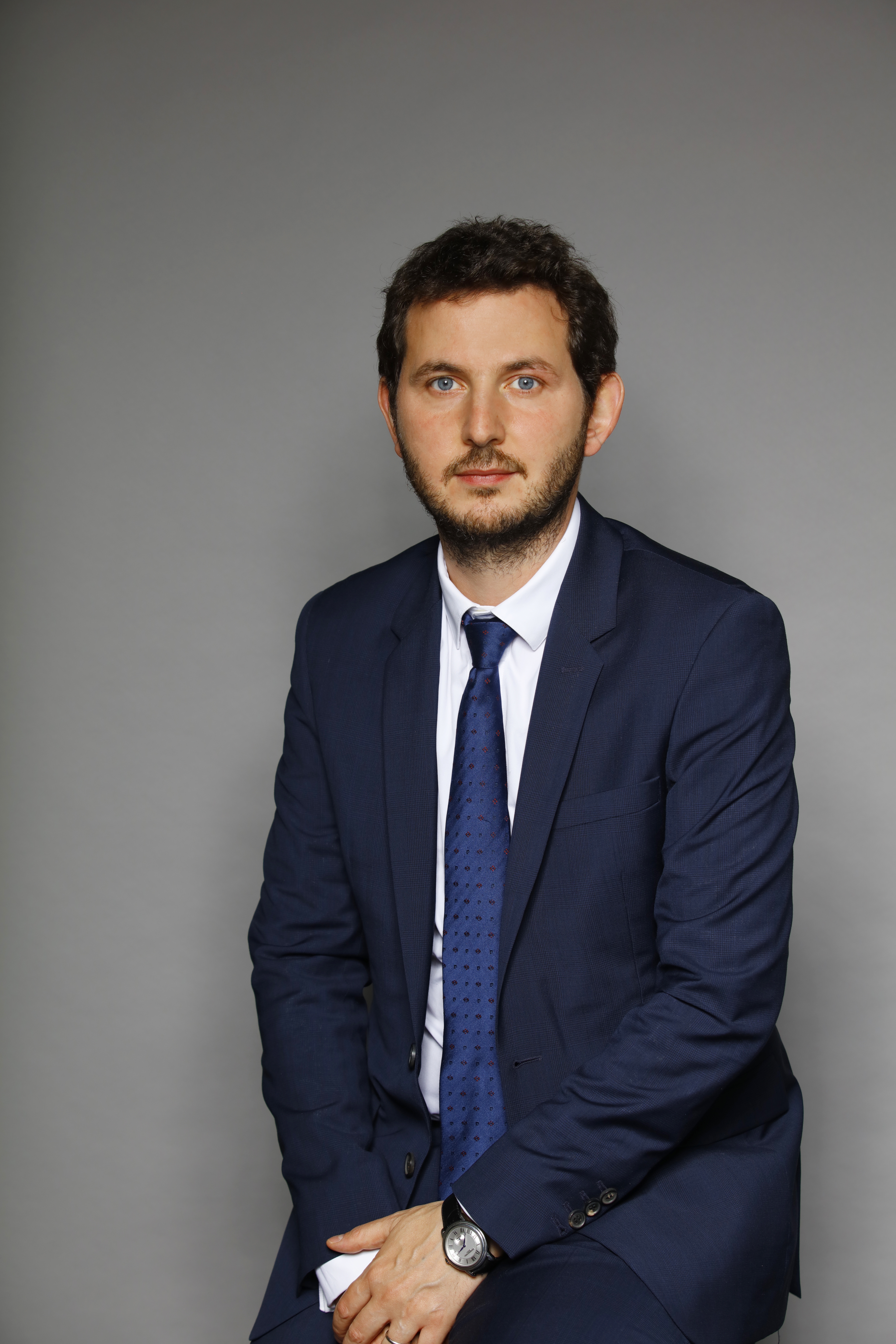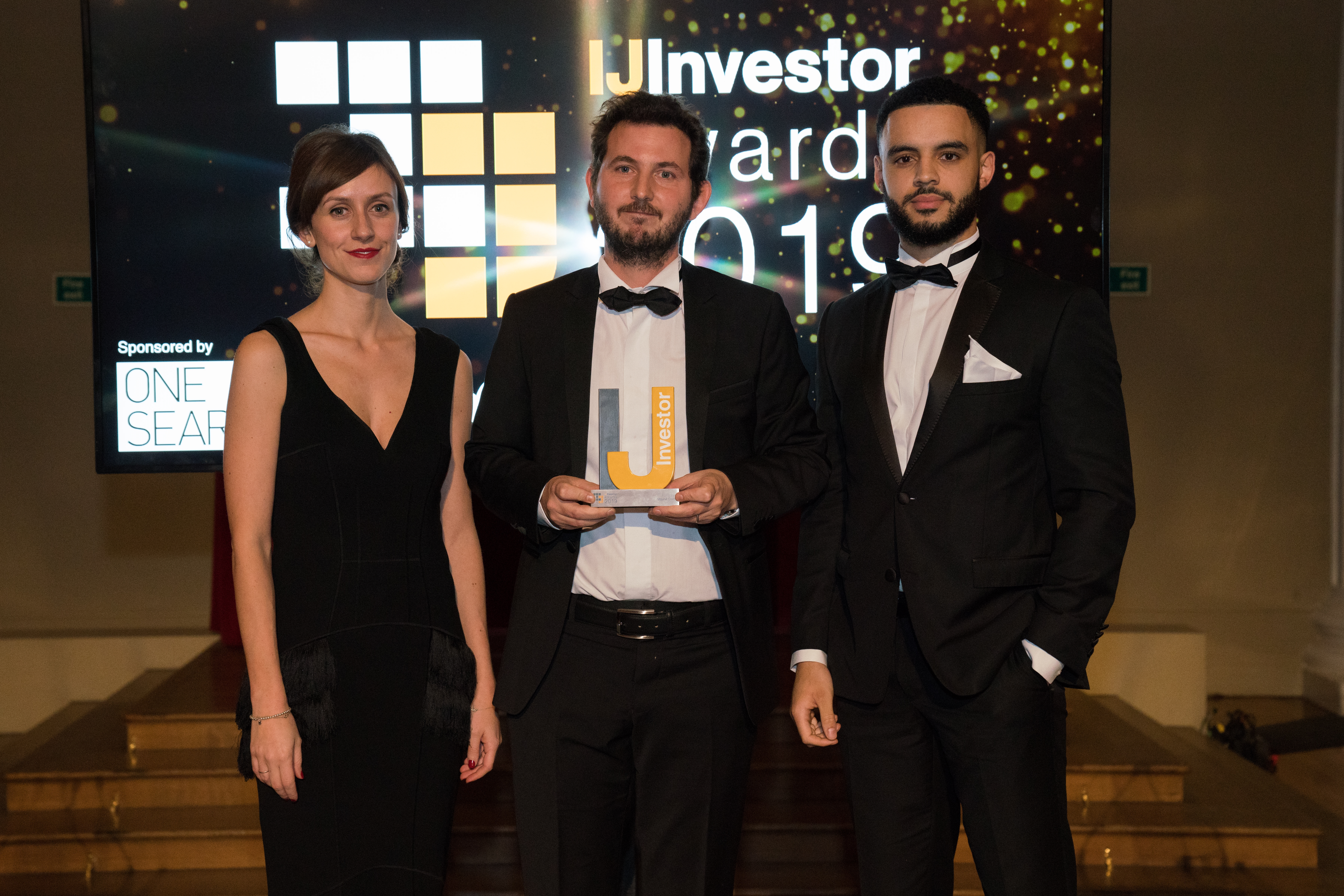IJInvestor Awards 2019 Rising Star – Mounir Corm
Talking to Mounir Corm, one immediately realises that you are dealing with someone whose interests and skills reach far beyond the financial universe.
His multi-faceted intellectual formation and curiosity seem to be the main drivers that took him to be the deputy head of infrastructure funds at Mirova at just 27, soon-to-be deputy CEO of Vauban Infrastructure Partners in 2019 and hence the winner of the IJInvestor’s Rising Star award – presented on the night by One Search senior consultant Liam Dunne.
It is not easy to find someone who, in their mid-thirties, has witnessed the start of infrastructure being treated as an asset class and followed step-by-step its evolution from a predominantly greenfield play to a more complex and expanding brownfield space.
Another thing that is soon clear about Mounir is that he is a patient team player who plays a long-term game. When he started at Natixis in 2008, the firm’s infrastructure business had only €200 million (roughly $290 million at the time) in assets under management and three assets in its portfolio. Today its AUM amounts to around €3 billion invested across 50 assets across Europe.
But he is quick not to credit himself alone for the results. “The key turning point for the firm was when Gwenola Chambon joined in 2010. Under her leadership, we rebuilt the team and grew the business,” he says.
From greenfield to brownfield
Having graduated in public affairs at Sciences-Po Paris, Mounir became intrigued by the intersections between corporate life and aspects of public interest and obtained a master in business at HEC Paris.
He started his career at PwC in 2007 advising the French government on the country’s first greenfield PPPs, including the Commissariat de Police, Cergy-Pontoise Hospital and others. The following year, he joined Natixis to work on its first equity infrastructure fund – FIDEPP.
In the years up to 2012 – when Mirova was created as Natixis’ infrastructure and renewables specialist division – Mounir worked on a number of significant greenfield transactions that helped him develop the skillset that would prove essential to his track record and that of the firm.

Being able to work hand-in-hand with industrial partners and sponsors was going to prove essential in the years thereafter. Following the European debt crisis in 2010, it became clear that Natixis’ remit in infrastructure equity had to expand beyond greenfield. It was right at that time that Gwenola Chambon joined the group from Galaxy Fund and made Mounir her number two.
In 2012, the infrastructure team was transferred to newly-established Mirova and in 2014 the infrastructure team launched its first brownfield fund Mirova Core Infrastructure Fund (MCIF). The fund closed in the summer of 2016 at €700 million plus €200 million in co-investments, nearly double the original €500 million target.
But it wasn’t an easy result to achieve. “With interest rates declining, investors were starting to look beyond fixed income to get the returns they sought without taking on too much risk. At the time, infrastructure equity was still perceived as very similar to private equity. Instead, we worked very hard to promote it as a long-term, cash yield which was close to fixed income, but with higher returns,” Mounir recalls.
And so “one of the most challenging and exciting times in my career” began, when Mounir strongly contributed in Mirova’s expansion into continental Europe brownfield PPPs.
From the €900 million refinancing of the A28 toll road between Rouen and Alençon, Mirova ventured into other European countries. Among others, Mounir was instrumental in the acquisition of Metro de Malaga in Spain, Udine District Heating in Italy and OsloFjord in Norway.
“The A28 refi is a very good example of where our infrastructure team’s expertise lies. Everybody told us it was an impossible asset to refinance but after two years of hard work we managed to refinance an index-linked, wrapped and listed bond structure with a long-term amortizing private placement,” Mounir says.
Taking a stance on the market is another characteristic of both Mounir and Mirova’s approach to infrastructure investing.
The acquisition of a 35% stake in Indigo Group this year is also testament to that. “Some people in the industry are sceptical about car parks, quoting declining traffic and car sharing in large city centres. However, we believe this is a short-sighted view as car park is part of urban mobility and is mostly a regional, long-term, concession-based sector which is set to continue to play a key role in local mobility,” he says.
A choral view
Mounir Corm would not be who and where he is today without the other two great passions of his life: international affairs and music.
Born in Lebanon, he arrived in France after fleeing the civil war at a very young age. Since then, Mounir has kept a close eye on his country of origin and has grown that attachment into a keen interest in its political system. In 2011, he published Pour une troisième République libanaise a study of the Lebanese constitution as it emerged from the Taif Agreement in 1989 that ended the civil war.
Published around the time of the Arab Spring, Mounir’s thesis joined that of the local civil society that advocates for a secular state in Lebanon.
Keeping his interests varied is what makes him excel at his job. “I always try to work with strong conviction and to remain intellectually curious. I love that infrastructure is not merely a financial activity but has a much wider network of social and industrial implications,” he says.
From the way he talks about it, it sounds like this wide-view approach is what he loves about classic music and orchestras. To be precise, Mounir does not simply love classical music. He is taking a master in orchestra direction, being already a trained pianist and cellist.
Asked whom his inspirational role model for is, he says: “It is indubitable that I learnt a lot from Gwenola. I am very thankful for having had the chance to work with someone who supported me and allowed me to grow. Beyond her, I would say that orchestra professionals are role model for me as they have to combine strong individual skills with high-level team work in order to deliver a common objective.”
The ability to keep a panoramic view overall is essential to the role of a fund manager, in Mounir’s opinion. “Fund managers face challenges every day at every level of their job. Anything can happen every day at asset level, but that is not the end of the story. A good fund manager needs to put all of their efforts in fundraising, stay on top of capital deployment and remain ahead of the curve on market trends in order to generate future deal flow.”
With this in mind, Mounir, alongside co-founder and CEO Gwenola, is about to embark on the next chapter of his infrastructure career: the launch of Vauban Infrastructure Partners. While remaining a Natixis affiliate, Vauban will work independently to build on Mirova’s infrastructure team legacy.
“This is why I like to say that Vauban is the true winner of the IJInvestor Rising Star award,” he says.
Given his track record so far, hopes are high for the future.
Request a Demo
Interested in IJGlobal? Request a demo to discuss a trial with a member of our team. Talk to the team to explore the value of our asset and transaction databases, our market-leading news, league tables and much more.


